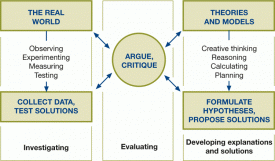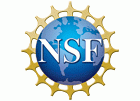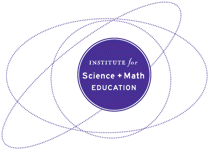Is it important to distinguish between the explanation and argumentation practices in the classroom?

Teachers should help students understand how scientific knowledge is produced through explanation and argumentation.
District staff and PD providers should emphasize the distinction between explanation and argumentation in PD and provide instructional supports and models of each to teachers.
School leaders should learn to recognize what it looks like for student to learn science through argumentation and explanation.
What is the Issue?
The vision laid out in the NRC Framework for K-12 Science Education asks learners to engage in the science practice of ‘constructing explanations’ and also in ‘argument from evidence’ (along with six other practices). But, some curricula and PD resources don’t make this distinction. They integrate argumentation into explanation and say that it isn’t important for students to understand the difference. Does it matter in the classroom?
Authors:
PHILIP BELL AND ANDREW SHOUSE
Reflection Questions
- Where does the explanation or argumentation practice already show up in your teaching— perhaps persuasive writing or debate? Do they?
- What might be confusing to students as you help them understand the difference between argumentation and explanation?
- How does the difference between argumentation and explanation show up in other subjects (e.g., history, language arts)?
Things to Consider
- Explanations are constructed from models and representations of reality—not out of data and warrants. With arguments, scientists attempt to logically reason from the data to a conclusion using appropriate warrants. Argumentation often involves comparing different explanations for natural phenomena in an evidence-based way. The two practices are deeply linked to each other, but they do different intellectual work for scientists. Review the Model of Scientific Practices from the NRC Framework to learn more.
- It can be simpler to not distinguish explanation from argumentation—to introduce students to one practice rather than two. This comes with some downsides.
- Argumentation involves a level of uncertainty—one argues to clarify for herself or to persuade others who have a different idea. A measure of uncertainty is powerful for constructing open-ended, authentic investigations for a class. Focusing on explanation and ignoring argumentation may inhibit such investigations. If this intellectual work is only framed for students as explanation then the classroom process of exploring and testing different student ideas through evidence-based argument may not happen. Explanation can easily only focus on finding the “right answer”—rather than developing an understanding of the conceptual ideas.
- Science curricula and assessments will likely differentiate between the two practices since the NRC Framework (and resulting standards) did, so learners need to see them as separate aspects of doing science.
"Where the goal of scientific explanation is to provide a causal account of events in the material world, argument seeks to use data and warrants to justify belief."
—Stephen Toulmin, philosopher
Attending to Equity
- All students should be fully engaged in argumentation- and explanation-focused instruction. Science communication is cultural and that needs to be taken into account. Students with limited proficiency in English often benefit from more custom supports to support the use of language in meaningful ways.
Recommended Actions You Can Take
- Learn more about the explanation and argumentation practices from the NRC Framework for K-12 Science Education.
- Distinguish between explanation and argumentation in lessons and show how they connect. Use different rubrics to analyze student work and thinking for each practice.
- Read a summary of the article by Osborne & Patterson on the differences between explanation and argument in science.
ALSO SEE STEM TEACHING TOOLS
- #4 Multiple Instructional Models
- #17 Beyond Written C-E-R
- #25 Equitable Argumentation
- Argumentation Playlist
STEM Teaching Tools content copyright 2014-22 UW Institute for Science + Math Education. All rights reserved.
This site is primarily funded by the National Science Foundation (NSF) through Award #1920249 (previously through Awards #1238253 and #1854059). Opinions expressed are not those of any funding agency.
Work is licensed under a Creative Commons Attribution-ShareAlike 4.0 Unported License. Others may adapt with attribution. Funded by the National Science Foundation (NSF). Opinions expressed are not those of any funding agency.


 Email Feedback
Email Feedback



